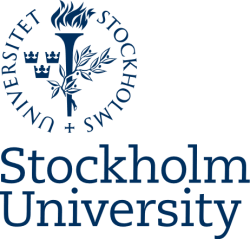- Back
- Location
- Anywhere
- Date Posted
- 18 Jan 2025

- Type
- PhD Project
- Anywhere
- 18 Jan 2025
PhD student in Physical Geography in the area: soil biogeochemical modelling

NOTE: this position listing has expired and may no longer be relevant!
Position Description
Project description
The position will be associated with the project “Scaling up soil carbon dynamics from microbial cells to ecosystems for next-generation Earth System models”.
Predicting emissions of greenhouse gases from soils is a major challenge in climate change research. It is challenging because emissions originate from microbial processes at microscopic scales that we cannot readily observe and scale up. In this project, we will evaluate processes at the microscale and describe mathematically how soil micro-organisms use soil resources at a larger scale. Experiments using high resolution soil imaging as well as thermodynamic and biochemical techniques will specify relations between the soil structure and microbial activity, and these empirical data will support the theoretical developments of carbon cycle models that are the ultimate aim of the project. New theories linking micro- and macro-scales will provide novel mathematical formulations, allowing more accurate predictions of climate change, its effects on ecosystems and serve as a fundation for development of alternative management practices in agriculture and forestry.
Qualification requirements
In order to meet the general entry requirements, the applicant must have completed a second-cycle degree, completed courses equivalent to at least 240 higher education credits, of which 60 credits must be in the second cycle, or have otherwise acquired equivalent knowledge in Sweden or elsewhere.
In order to meet the specific entry requirements, and to fulfil the general syllabus for doctoral studies in the field of physical geography, the candidate for this position should have acquired a total of 240 higher education credits (of which at least 60 at advanced level), or acquired in some alternative fashion, the equivalent knowledge in engineering science, applied mathematics, physics, geoscience, or environmental science.
Only a person who will be or has already been admitted to a third-cycle programme may be appointed to a doctoral studentship. The primary assessment criteria in appointing a doctoral student should be the capacity to benefit from the training.
Selection
The selection among the eligible candidates will be based on their capacity to benefit from the training. The following criteria will be used to assess this capacity: the candidates’ documented knowledge in a relevant field of research, written and oral proficiency in English, the capacity for analytical thinking, the ability to collaborate, as well as creativity, initiative, and independence. The assessment will be based on previous experience and grades, the quality of the degree project, references, relevant experience, interviews, and the candidate’s written motivation for seeking the position.
Specifically, the candidate should be interested in linking theory and experimental approaches in the context of the project, and is expected to lead part of the experimental activities with project collaboratorsat the Swedish University of Agricultural Sciences (SLU). The candidate should have experience in developing mathematical models (e.g., dynamical system theory, mass and energy balance equations), and working knowledge of Matlab, Mathematica, or other programming languages for model implementation.


